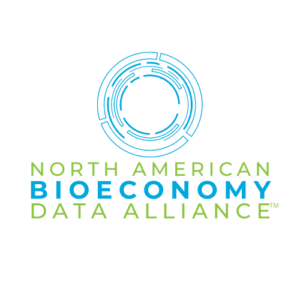North American Bioeconomy Data Alliance

Today, the feedstock management system is fragmented and lacks a common data structure, which is needed for a resilient and robust end-to-end system.
The North American Bioeconomy Data Alliance (NABDA) represents a pioneering initiative aimed at advancing feedstock management through the integration of data-driven approaches and innovative technologies.
Participants will look at data pertaining to national inventories of biomass, farm waste and feedstock, along with supporting quality and quantification data guiding the back-and-forth exchange of energy-to-ag/ag-to-energy sector feedstock information.
Given that there is true demand for the various products (and biproducts from processing), we expect these data sets to offer excellent and valuable insight generation. This exercise could work to identify how, where and when the pooling and sharing of data can both minimize waste while maximizing the buying/selling, transportation, processing and usage of biomass and feedstock products.
Participating Entities
The demand for the various feedstock inputs is coming from various entities in the energy, renewables, health, waste heat, composting, biofertilizer, evolving plastics and cover crop spaces. By fostering collaboration among industry leaders, academic institutions, and governmental agencies, NABDA seeks to optimize the production, processing, and utilization of biological feedstocks.
Challenges
- Fragmentation and Silos: One of the significant challenges is the fragmentation of data, processes, and stakeholders across different stages of the feedstock management system. Siloed approaches hinder seamless collaboration and data sharing.
- Data Quality and Standardization: Ensuring the quality and standardization of data across different stakeholders and systems is crucial for effective collaboration. Inconsistent data formats, quality issues, and lack of standardization can impede collaboration efforts.
- Complexity of Supply Chains: Feedstock management involves complex supply chains with multiple stakeholders, including suppliers, producers, distributors, and end-users. Coordinating activities and information flow across these diverse stakeholders can be challenging.
- Technological Integration: Integrating various technologies and systems used by different stakeholders into a cohesive platform for collaboration can be technically challenging. It requires interoperability among different systems and technologies.
- Regulatory Compliance: Compliance with regulatory requirements related to feedstock management, such as environmental regulations and product safety standards, adds complexity to collaboration efforts. Ensuring all stakeholders adhere to relevant regulations can be a challenge.
Opportunities
- Advanced Analytics and Predictive Modeling: Leveraging advanced analytics and predictive modeling techniques can help optimize feedstock management processes. By analyzing historical data and predicting future trends, stakeholders can make informed decisions and better collaborate to mitigate risks and optimize resource allocation.
- Blockchain and Distributed Ledger Technology (DLT): Blockchain and DLT offer opportunities for secure and transparent data sharing among stakeholders. These technologies can enhance trust and accountability in collaborative feedstock management initiatives by providing an immutable record of transactions and data exchanges.
- IoT and Sensor Technologies: IoT devices and sensor technologies can provide real-time monitoring and data collection capabilities throughout the feedstock supply chain. This enables stakeholders to track the movement and condition of feedstock materials, identify potential issues proactively, and collaborate effectively to address them.
- Cloud Computing and Collaboration Platforms: Cloud-based collaboration platforms offer scalable and flexible solutions for sharing data, documents, and insights among stakeholders. These platforms enable real-time collaboration, version control, and access control, facilitating seamless communication and coordination.
- Cross-Sector Collaboration: Collaborating across sectors, such as academia, industry, government, and non-profit organizations, can bring diverse expertise and resources to address feedstock management challenges. Initiatives such as public-private partnerships and industry consortia can foster collaboration and innovation in this domain.
Founders and Supporters:
- Mission Critical USA
- Industries in Transition
- Meister Media Worldwide
- Global Ag Tech Initiative
- AquaSpy
- Canadian Agri-Food Automation Intelligence Network
- BETO
Want to Be a Part of This Groundbreaking Initiative?
Here’s what you get as a Partner:
- A guaranteed seat at the planning table
- Input into the process and working model
- The right to be part of building groundbreaking governance modeling
- The ability to have an insider's look at the standards that will influence their business in the future
- Thought-leadership positioning as an organization playing a role in the capture of valuable data, valuing of new products, mitigation of risk, transportation of raw materials and/or processing and delivery to demand markets
- A first-hand look at various paths to new potential revenues
- Two Tickets to attend the Invite Only Virtual Session – Max 50 ppl.
- Logo recognition on roundtable event signup page
- Mention during roundtable virtual meeting
- Opportunity to send a partner message (and URL) to participants after the session in a "thank you" email
- Recognition in the post-roundtable article recap
- 250 word partner messages in the final report
- Mention during report-out webinar (March 2025)
- Logo recognition on signage at the NABDA exhibitor booth at Tech Hub LIVE (July 2025)
This is your chance to get involved! For partnership opportunities, please contact:
Wendy Ell (Canada) [email protected]
Joyce Hunter (US) [email protected]



